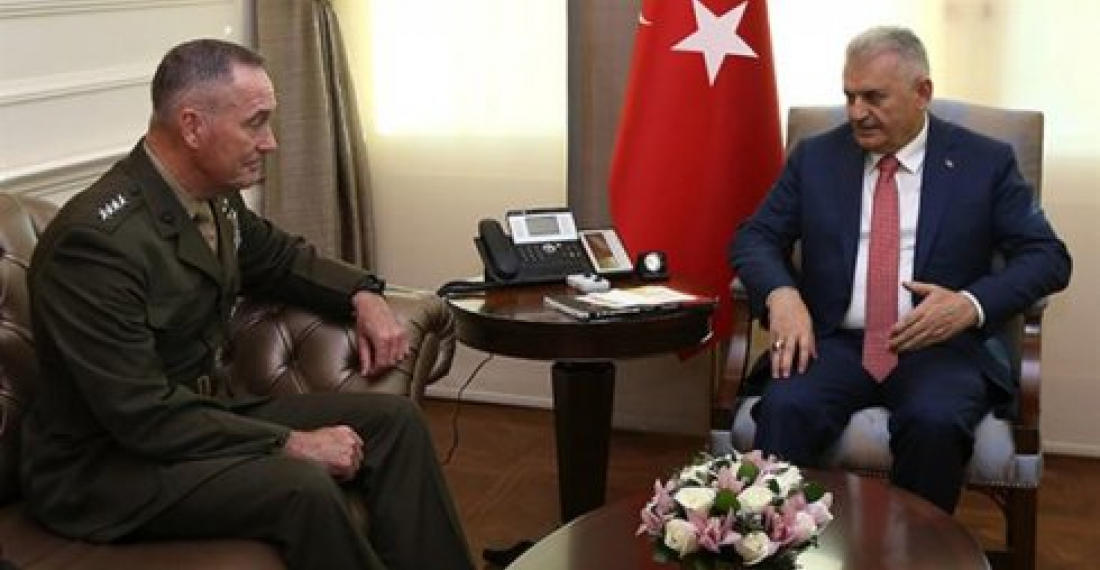Turkey is keeping up pressure on the United States for the extradition of Islamic Scholar Fettulah Gulen, who is accused of being the mastermind behind the failed attempted coup on 15 July.
Turkish Prime Minister Binali Yildirim reiterated Turkey's demand during a meeting with the Chairman of the US Joint Chiefs of Staff, Marine Corps General Joseph Dunford, who was visiting Ankara.
Hurriyet Daily News (HDN) quotes sources at the office of the prime minister saying that Yildirim described the July 15 coup attempt as the gravest threat to the Turkish people and Turkish democracy. As such, the support the U.S. would pledge to Turkey and its democracy by openly rejecting the coup is very important to Turkey, the Prime Minister told Dunford, according to the sources.
On his part Dunford underlined that he condemned the coup attempt in the strongest terms and was paying the visit to show his country's solidarity with the Turkish people and government. Dunford reiterated the support of the US Government to Turkish democracy and the willingness to continue to work with Turkish authorities in the military and other fields.
On Monday, Dunford had a separate meeting with Turkish Chief of General Staff General Hulusi Akar. According to Turkish media sources, cited by TDN, when Dunford asked Akar for evidence of Gulen's involvement with the coup, the Turkish general replied, "What evidence? I am the evidence". Akar was taken prisoner by the coup plotters as the coup unfolded on 15 July, and one senior coup leader offered to put him in touch with Fettulah Gulen on the phone, describing the cleric, as "our guide".
source: commonspace.eu with Hurriyet Daily News
photo: US Chairman of the Joint Chiefs of Staff General Dunford meeting with Prime Minister Binali Yildirim in Ankara on 1 August 2016 (picture courtesy of HDN)






